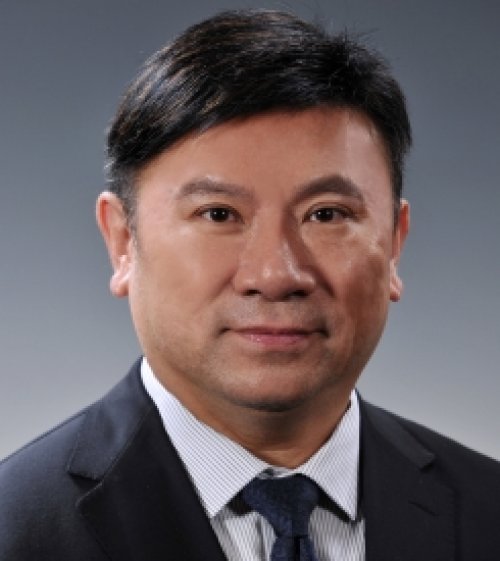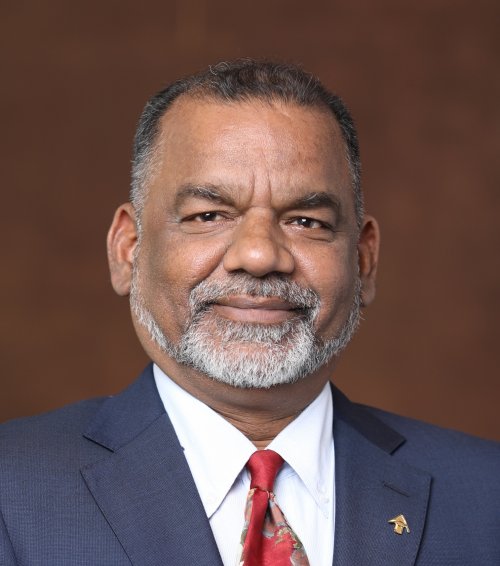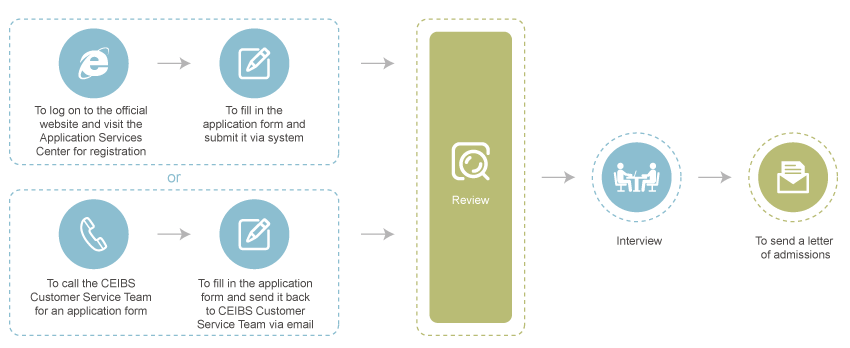Advanced Management Programme (Modular)
Beijing: Afternoon, July 9, 2026 / Beijing, Shanghai, Shenzhen
Shanghai (Autumn): Afternoon, September 17, 2026 / Shanghai, Beijing, Shenzhen
Shanghai (Winter): Afternoon, December 3, 2026 / Shanghai, Beijing, Shenzhen
Participants
Ideal candidates for this practice-oriented programme are presidents and general managers from fast-growing companies, general managers from business units of conglomerates, and executives with high potential and at least eight years of management experience.
Introduction
China is an emerging economy in transition and the unique complexities of the Chinese market, rarely seen before in global business, pose considerable challenges for Chinese managers. According to the Analects of Confucius, people fall into one of four categories: those born with full possession of knowledge, those who gain wisdom through learning, those who learn when facing challenges, and those who never learn despite facing difficulties. In today's business environment, we can't expect professionals to be born learned and wise. The CEIBS Advanced Management Programme (AMP) is for senior managers who have wisely realised that management education will contribute to the long-term development of their company. The AMP will help ensure they are well-prepared to solve puzzles and seek wisdom.
Working as a general manager can significantly advance one's career development; whether one can fulfill the requirements of such a post has a direct bearing on the survival and sustainability of the company. Amid fierce competition, companies can make huge strides under the direction of professional leaders, particularly those with extraordinary foresight. No entrepreneur is born wise, and overnight success is rare. An excellent manager must take the initiative to overcome the complexities of management through systematic and creative thinking and learn to identify effective solutions, rather than passively wrestling with problems.
As one of our most distinctive flagship programs, the AMP is designed specifically for leaders and general managers of fast-growing companies and business units within a conglomerate. The 2024 AMP consists of nine modules covering thirteen key management topics at three core levels. Tailored to the evolving learning needs of business leaders, the programme is designed to help them better understand the unique role of the general manager in an organization and provide them with a solid foundation in management theory and skills.
Programme Coverage
【Big-picture thinking】
- Macroeconomic landscape
- Global vision
- Strategic thinking and management
- Leadership of excellence
- Business decision-making
- Enterprise risk control
【Core business】
- Corporate finance
- Marketing
- Talent management
- Management accounting
- Wealth management
【Learning by doing】
- Innovation and entrepreneurship
- Business simulation and leadership reflection
A certificate of completion will be awarded.
Gain membership in the CEIBS Alumni Association. Learn More
Contact Us
Shanghai
Tel: (86 21) 2890 5187
Email: exed@ceibs.edu
Address: 699 Hongfeng Road, Pudong, Shanghai
Beijing
Tel: (86 10) 8296 6688
Email: exed@ceibs.edu
Address: Building 20, Zhongguancun Software Park, 8 Dongbeiwang West Road, Haidian District, Beijing
Shenzhen
Tel: (86 755) 3699 5199
Email: exed@ceibs.edu
Address: 142 Zimao St., Qianhai Cooperation Zone, Shenzhen, P. R. China 518066
-
 Chen, ShaohuiProfessor of Management Practice;
Chen, ShaohuiProfessor of Management Practice;
Programme Co-Director of Advanced Management Programme
Core Faculty of CEIBS Healthcare Sector Research Centre -
 Han, JianProfessor of Management;
Han, JianProfessor of Management;
Director of CEIBS Centre for Organizational Growth and Talent Development
Programme Director of Chief Human Resources Officer (CHRO) Programme
Programme Co-Director of Advanced Management Programme -
 Zhao, HaoProfessor of Management
Zhao, HaoProfessor of Management
Programme Co-Director of Advanced Management Programme -
 Zhou, DongshengProfessor of Marketing, CEIBS
Zhou, DongshengProfessor of Marketing, CEIBS
Director of CEIBS Healthcare Sector Research Centre
Programme Co-Director of Smart Healthcare Startup Programme
Programme Co-Director of Advanced Management Programme -
 Bai, GuoAssistant Professorof Strategy and Entrepreneurship, CEIBS
Bai, GuoAssistant Professorof Strategy and Entrepreneurship, CEIBS -
 Tsai, Soo-Hung TerenceAssociate Professor of Strategy and International Business, CEIBS
Tsai, Soo-Hung TerenceAssociate Professor of Strategy and International Business, CEIBS -
 Cheng, LinProfessor of Accounting;
Cheng, LinProfessor of Accounting;
Department Chair (Finance and Accounting),CEIBS -
 Guo, WeiAssociate Professor of Strategy and Entrepreneurship, CEIBS
Guo, WeiAssociate Professor of Strategy and Entrepreneurship, CEIBS -
 Jiang, YuanAssociate Professor of Management, CEIBS
Jiang, YuanAssociate Professor of Management, CEIBS -
 Li, QiangAssociate Professor of Strategy, CEIBS
Li, QiangAssociate Professor of Strategy, CEIBS
Programme Co-Director of Advanced Management Programme -
 Lan, XiaohuanProfessor of Economics, CEIBS
Lan, XiaohuanProfessor of Economics, CEIBS -
 Liang, NengProfessor Emeritus, CEIBS
Liang, NengProfessor Emeritus, CEIBS -
 Ramasamy, BalaProfessor of Economics,
Ramasamy, BalaProfessor of Economics,
Associate Dean;
Director of GEMBA Programme, CEIBS -
 Rui, MengProfessor of Finance and Accounting;
Rui, MengProfessor of Finance and Accounting;
Parkland Chair in Finance;
Associate Dean (PhD);
Director of CEIBS Centre for Wealth Management;
Co-Director of CEIBS Centre for Family Heritage
Programme Director of Family Office Diploma Programme -
 Schuh, Sebastian ChristianProfessor of Organisational Behaviour;
Schuh, Sebastian ChristianProfessor of Organisational Behaviour;
Department Chair (Organisational Behaviour and Human Resource Management), CEIBS -
 Wang, GaoProfessor of Marketing;
Wang, GaoProfessor of Marketing;
Baosteel Chair in Marketing;
Associate Dean;
Director of Executive Education Programme;
Programme Director ofChief Marketing Officer (CMO) Programme
Programme Co-Director of Global CEO Programme for China -
 Wang, YajinProfessor of Marketing, CEIBS
Wang, YajinProfessor of Marketing, CEIBS
Associate Dean (Research)
Research Area Director of ESG
Programme Co-Director of CEIBS-Branding Boot Camp -
 Wang, An-Chih AndrewAssociate Professorof Management, CEIBS
Wang, An-Chih AndrewAssociate Professorof Management, CEIBS
Programme Co-Director of Leadership Development Programme -
 Xu, BinProfessor of Economics and Finance, CEIBS
Xu, BinProfessor of Economics and Finance, CEIBS
Wu Jinglian Chair Professor in Economics -
 Yang, WeiAssociate Professor of Management, CEIBS
Yang, WeiAssociate Professor of Management, CEIBS -
 Zhang, FeidaAssociate Professor of Accounting, CEIBS
Zhang, FeidaAssociate Professor of Accounting, CEIBS
Programme Co-Director of Chief Financial Officer (CFO) Programme -
 Zhang, HuaAssociateProfessor of Finance, CEIBS
Zhang, HuaAssociateProfessor of Finance, CEIBS -
 Zhang, LinglingAssociate Professor of Marketing, CEIBS
Zhang, LinglingAssociate Professor of Marketing, CEIBS
Associate Dean
Director of MBA Programme -
 Zhao, XingeProfessor of Finance and Accounting;
Zhao, XingeProfessor of Finance and Accounting;
Executive Deputy Director of CEIBS Lujiazui International Institute of Finance (CLIIF), CEIBS
-
 Zhang, WenqingVisiting Professor, CEIBS
Zhang, WenqingVisiting Professor, CEIBS
Programme Objective
The study of management, like the understanding of a civilization, involves moving from the instrumental level to the institutional level to the ideological level. The instrumental level includes a variety of analytical management tools, methods, and techniques; the institutional level includes specific management systems such as governance structure, organizational structure, and business processes; and the ideological level includes values and beliefs that inform strategic management tasks such as leadership, fostering corporate culture, and change.
By introducing a strategic mindset, a systematic theoretical framework, and a variety of practical management tools, the AMP provides participants with deep insights into Chinese management practices at the instrumental, institutional, and ideological levels to help them easily and confidently navigate management challenges in the complex business landscape.
The nine core modules covering thirteen topics will enable AMP participants to:
- Think outside the box and reflect on strategy positioning and formulation.
- Appropriately allocate resources based on a deep understanding of each functional area and develop an overall business plan, processes, and systems.
- Better align business processes with growth and profitability objectives.
- Better understand the organization’s operating and motivational mechanisms and build strong organizational capabilities to effectively execute business strategies.
- Identify innovation trends, develop an innovation strategy, and create innovation value in the context of digital transformation.
- Better compete and collaborate in the business community, and actively participate in formulating the rules of the game to promote the healthy development of the industry.
- Gain a better understanding of risk management and the principles for designing internal controls to address the uncertainties of a complex marketplace.
- Learn, discuss, and share best practices in business management and operations with outstanding leaders from a variety of industries.
Programme Benefits
Participants will:
- Gain knowledge of general management, including macroeconomics, leadership, marketing, finance and accounting, business negotiations, strategy formulation and implementation, risk control, business decisions, and capital operations.
- Acquire advanced and practical management tools, establish their own theoretical framework for management, and develop an effective strategic mindset.
- Gain in-depth insight into the role of a general manager and learn how to interact with superiors, subordinates, team members and external stakeholders.
- Develop the sustainable self-development skills required of a general manager.
- Seize opportunities in the capital market and leverage financial resources to serve business strategies.
- Develop a mindset that can effectively deal with decision problems in times of uncertainty and strengthen the ability to deconstruct, reflect and analyze complicated decision problems.
- Become a member of the CEIBS Alumni Association and join the dynamic AMP Club.
Programme Content
The CEIBS AMP is designed to cover the top ten topics of greatest concern to general managers in three broad categories:
【Big-picture thinking】
Macroeconomic landscape
- Drivers and strengths of China’s robust growth: a global perspective
- A distinctive feature of China’s economic growth
- Causes of China’s economic slowdown in recent years
- China’s growth prospects in the post-COVID era
- China-US relations and the future of the global economy
Global vision
- Key economic variables
- Economic growth and development - short-term issues
- Economic growth and development - long-term issues
Strategic thinking and management
- Defining strategy
- External environment: Industry analysis
- Five forces that shape strategy
- External environment: Macroeconomic analysis and strategy
- External environment: National, regional, and urban environment and strategy
- Internal environment and strategy
- Strategy formulation: Types of strategy
- Strategy implementation: Strategic leadership
Leadership of excellence
- Personal leadership style: PDP behavioral assessment
- Managing high performance
- Motivation and engagement
- Team coaching
- Fundamentals of leading high-performance teams
- Effective team decision-making
- Managing influence and power
- Elements and major types of organizational design
- Driving organizational change
- Building a sustainable organization
Business decision-making
- Introduction to game theory models
- Game theory and business strategy: Strategic marketing in the Olympic Games
- Dynamics of market competition
- The five elements of the game
- Value network co-created by participants
- The essence of supply chain management
- Lock-in effect and switching costs
- How to set reasonable rules of the game?
- How to capture the evolution of the industry?
- Challenges of the changing marketplace
- Game strategy, scope of the game, and game theory in business practice
Enterprise risk control
- Information and Risk Control Fundamentals
- Financial Reporting Quality and Risk Control
- Relationship between the three financial statements and the role of accruals
- Earnings quality risk: Analysis and adjustment
- Rethinking earnings quality risk: Motives and means of earnings manipulation
- Predicting and controlling the risk of financial fraud: Theory and practice
- Actual fraud cases and the importance of predicting financial fraud risk
- An review of methods for predicting the risk of financial fraud
- Using financial statements to predict financial fraud risk (a big data perspective)
- Predicting financial fraud risk and investment strategy
- Predicting and managing credit risk: Theory and practice
- Credit supply and demand
- The process of credit risk analysis and prediction
- Calculating, interpreting, and controlling credit risk
- Using bankruptcy prediction models to predict and control bankruptcy risk
【Core business】
Corporate finance
- Introduction to financial statements
- Profit, assets and liabilities, and cash flow
- The relationship between the three financial statements
- Ratio analysis: Common third-party financial indicators
- Impact of business activities on financial statements
- Revenue recognition: Performance based on consolidated financial statements
- Common size analysis to create a business profile
- Understanding and analyzing financial statements
- Liquidity management: Making money at no cost
- Non-current assets: R&D and goodwill
- Income statement analysis: Accounting profit and business valuation
Marketing
- User-centric business model and marketing strategy based on user value creation
- Market opportunities and challenges in an era of rapid change
- Underlying marketing logic and key marketing decisions
- User acquisition and experience
- Digital user management
- Brand strategy development, branding and integrated marketing communications in the digital age
- The unique value of brands in consumer decisions and experiences
- Consumer decision pathways and customer-based brand equity in the digital age
- Brand positioning
- Integrated marketing programs to build brand equity
- Building and sustaining brand equity and DTC brands
- Brand architecture and portfolio strategy
- Leveraging market portfolios and brand extensions to increase market share and move into higher and lower-end markets
- Evolution of DTC brands
- Future of DTC and DTC brands in China
Talent management
- Strategic talent management
- Frontier: Talent management difficulties during rapid organizational expansion
- Discipline and emotion in talent management
- Performance appraisal and feedback
- Employee wellness
- Frontier: Artificial intelligence and talent management
- Human resources analytics
- Interviewing and robotic interviewing
- Talent mobility, development and retention
- Internal talent market
- Frontier: Age, generation, and Gen Z employee management
Management accounting
- Cost terminology
- Job costing
- Activity-based costing (ABC)
- Cost allocation
- Cost-volume-profit (CVP) analysis
- Decision-making and related information
- Pricing decisions
Wealth management
- Finance and wealth
- Risk identification
- Demographics and wealth management
- Asset class
- Asset allocation
- Dollar cycle and wealth management
- Alternative investment
- Behavioral finance
- Insurance scheme
- Trust and family office
- Estate planning
- Inheritance and philanthropy
【Learning by doing】
Innovation and entrepreneurship
- Business model innovation
- Exploring and exploiting the mismatch
- Business model design
- Entrepreneurial methodology
- Digital strategy
- Data-driven operations and middle office strategy
- Entrepreneurial strategic decision-making
- Innovation and change
- Strategic business model thinking
- Customer value and management
- The Innovator’s Dilemma
- Business model game
- Business model pivot and game
- Game modeling and review
- Value network and game decisions
- Entrepreneurial Leadership
- Equity game
- The entrepreneur’s dilemma
- Recap and reflection
Business simulation and leadership reflection
- Simulation of competitive strategy confrontation
- Strategy formulation and effective implementation
- Environmental analysis and strategic thinking
- Executive teamwork
- Leadership styles and team complementarity
- Managing team effectiveness
- Team behavior reflection
- Leadership behavior reflection
- Organizational leadership development
To help participants quickly grasp and apply key knowledge points, the programme is designed to include a series of activities that provide a hands-on, immersive experience.
- Team-building (“rowing together”)
Participants will take part in a rowing and team leadership course. Rowing is a sport that demands exceptional teamwork and leadership. It not only tests individual physical endurance and technical skills, but also requires team coordination and a leader’s capacity to drive collective success. Through hands-on rowing experience and theoretical learning, participants will acquire a more profound understanding of the fundamental concepts of leading a team and how to implement them in managing a business.
Requirements for participants: Resilience and a strong sense of responsibility.
- Brainstorming (“sparking creative ideas”)
A professor-led brainstorming session is organized for students to explore constructive and creative solutions to current challenges or trending issues facing their respective companies.
Requirements for participants: Be open and willing to share their ideas.
- Benchmark company visits (“using industry leaders as benchmarks”)
Led by the AMP Academic Director or a CEIBS professor, visits to benchmark companies run by the participants are organized before and after the modules to give participants the opportunity to interact with senior executives.
Requirements for participants: thirst for knowledge and willingness to follow advice.
- Thinking outside the box (“drawing lessons from the experiences of business leaders)
During the programme, business leaders will speak to participants and inspire them to engage in interdisciplinary learning that prepares them for new opportunities and challenges in a complex and ever-changing business landscape.
Requirements for participants: remain curious and think critically.
- Writing a reflection report (“putting theory into practice”)
Participants will be required to review a variety of materials covered in various modules, including readings, class materials, and course notes, and then write a reflection report on their respective company’s operations, an assignment designed to help them better apply theoretical knowledge to real-world business problems.
Requirements for participants: a commitment to innovation.
- A “post-AMP” module with a variety of events (pursuing “lifelong learning”)
To enhance the physical and mental well-being of participants, a post-AMP module will be offered with forums, field visits and reunions, in line with the principle of “strengthening cohesion among AMP alumni, sharing experiences and resources, promoting healthy lifestyles and instilling a sense of corporate social responsibility”.
Requirements for participants: Demonstrate team spirit to grow together.
Chairman, General Manager, Senior Economist
Shanghai Fosun Pharmaceutical Co Ltd
General Manager
Shanghai Swan I/E Co Ltd
General Manager
Shanghai Kankun Trading Co., Ltd.
General Manager
F&J International Group Inc.
General Manager
Shanghai Mainland Pharmaceutical Co., Ltd.
Managing Director
Shanghai Yanlord Property Co., Ltd.
General Manager
Stolt-Nielsen Transportation (Shanghai) Ltd.
General Manager
Lanxess (Wuxi) Chemical Co., Ltd.
Shanghai Heng Yuan Xiang Textile Co., Ltd.
Senior Director, Operations Management and Development, Asia Pacific
Teaching Language
Partly Chinese, partly English with sequential Chinese interpretation

Admissions Procedures
Applications are requested at least 30 days before the programme start date. Applications are reviewed as they arrive and admissions are subject to the final confirmation of CEIBS. Any applications received after that date will be considered on the basis of space availability. For more information, please contact our Customer Service Team in Shanghai, Beijing or Shenzhen.
Cancellations
Any cancellation made 30 days or more prior to the programme start date is eligible for a full refund of programme fees paid. However, the expenses arising therefrom shall be for the account of the applicant or his/her employer. Any cancellation made less than 30 days prior to the programme start date shall be subject to a fee of 20 percent of the total programme fee. After the programme starts, no fees shall be refunded for participants who withdraw from the programme for any reason.
Notification
To ensure the continuity of your learning, you are required to make proper arrangements according to the course schedule after receiving your letter of enrollment. We will neither make up lessons for you nor confer you with the certificate of completion if you are absent from the course for personal reasons. CEIBS reserves the right to amend information on this programme including price, discount, date, location, faculty, daily schedule and other details.










